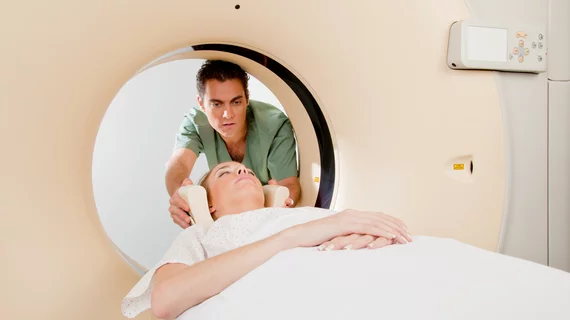Routine brain imaging should be considered in patients with advanced kidney cancer
Oncologists should consider performing baseline brain imaging in patients with metastatic kidney cancer, according to a study published in the Journal of the National Comprehensive Cancer Network.
Such exams are regularly ordered in renal cell carcinoma (RCC) patients with symptoms that indicate cancer may have spread to the central nervous system, but none of the participants with brain metastasis in this study were symptomatic.
And after analyzing more than 1,600 of these individuals, 4% showed asymptomatic spread to the brain, researchers explained in the April issue of JNCCN.
Lead investigator Ritesh R. Kotecha, MD, with Memorial Sloan Kettering Cancer Center, said based on this metric “one might conclude that baseline brain imaging should be considered in all patients with metastatic kidney cancer, particularly those with multi-organ involvement and/or pulmonary metastases.”
Researchers with the Gustave Roussy Institute, an academic cancer center located outside of Paris, joined Sloan Kettering researchers in studying 1,689 patients with metastatic RCC who had been considered for a clinical trial at one of the two institutions between 2001 and 2019. Each had undergone brain CT/MRI despite doctors not suspecting brain involvement.
Eighty-six percent of those with asymptomatic brain cancer spread also showed disease in two or more other organ systems, most often in the lungs, the authors reported.
And evidence found 48% of these individuals had a median one-year survival rate and median overall survival of 10.3 months.
There are two key takeaways from these findings, according to Eric Jonasch, vice-chair of the National Comprehensive Cancer Network Clinical Practice Guidelines in Oncology Panel for Kidney Cancer. One, they show the overall prognosis is worse for patients with brain metastases compared to those with metastatic renal cell carcinoma. And two, baseline MRI is effective at spotting brain spread in those with metastatic RCC.
Read the entire study here.

